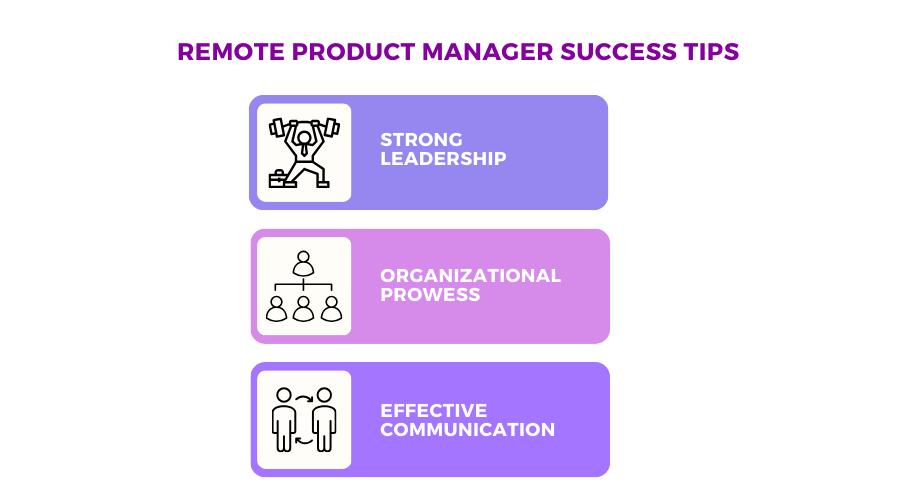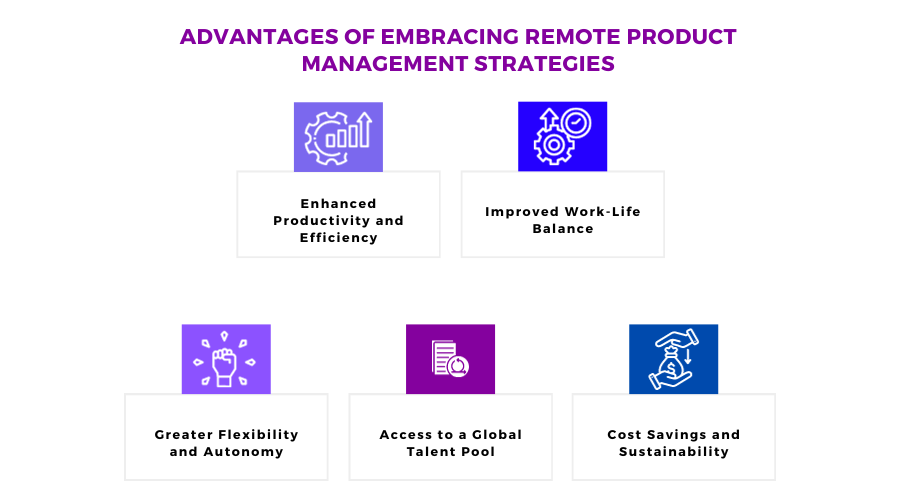Product Managers: 3 Tips for Achieving Success in a Remote Environment

By: Sid Bharath, Co-Founder of UseBroca.com
I’ve always admired product managers. The most successful ones are essentially liaisons between multiple people and departments in a company – engineering, sales, support, marketing, and so on.
It’s not an easy job at the best of times. And now when the world is moving to remote work and all the people you work with are in different places, on different schedules, the job becomes even tougher.
In this blog post, we will explore the necessary skills a product manager must have to succeed in this rapidly changing work environment. Do you think you have what it takes? With the right skills, it’s possible for remote workers to succeed as a PM.

Strong Leadership Skills
The phrase “product manager” already implies the need to be a good manager. But management is not the same as leadership.
It’s easy (relatively) to manage a group of people when you’re all in the same room, working the same hours. But now you have people across time zones with their own schedules. Pulling them all together in the same direction requires an inspiring leader.
You’ll need to show initiative and drive in order to succeed as a remote leader. You’ll need to communicate, collaborate, and coordinate digitally- not just by email or chat.
Let’s look at some tips for success:
Get Everyone On The Same Page
One of the first things to do is to make sure your team has a shared understanding of what strategy and goals you want them to work towards.
Explain your expectations for what they should deliver, and make sure they understand what you want them to do. Being remote, they may need a little more clarification than someone who is sitting next to you.
Build Trust
Trust is one of the most essential elements for productivity and success when working remotely. Your team must trust each other to do what they say they will do, and both parties must take into account things like workload, personal lives, etc. (e.g., if somebody is unavailable based on their schedule).
Building trust can be challenging but it pays off in making an agile team successful at reaching goals and improving company culture while working together remotely.
Celebrate Successes
Be sure not to miss an opportunity to congratulate team members on how much progress they’ve made and celebrate any success as thoroughly as possible. During trying times, even the smallest win should be celebrated to improve morale.
Give Feedback
Always give feedback after a task has been completed. This way they know if they’ve done something wrong and where improvements can be made. Conversely, Let your team know you’re open to feedback and encourage them to give it.
Lenny Ratchitsky recommends doing post-mortems after every project with the aim to learn, rather than blame and point fingers.
Organization and Prioritization Capabilities
It may seem like a remote work environment would give you more free time than an office setting, but the opposite can actually be true if you’re not organized. Find a system that works for you and stick with it in order to keep your work load up-to-date and avoid possible frustration when looking for information.
Sound organizational skills help you stay on top of deadlines as well as balance your priorities with the needs of your team and other managers. Here are some things to consider:
Have A Central System
Organize your tasks and priorities in one central place and have your team in there. A tool like Team Radar is perfect for this because it allows your team to work with you on priorities and get everyone on the same page.
Additionally, you’ll be able see how prioritization for various features aligns or diverges across the entire team and can proactively manage prioritization disagreements with key stakeholders.
Create A Meeting Cadence
Consider setting up a call with your direct reports/team members every month to discuss what they’re working on, review what’s been completed, and set micro-goals for the coming month.
Use this time to ensure that you have a shared understanding of the goals and deadlines with your team.
Align Everyone Visually
Gantts and Kanbans are popular for a reason. The visual views of work help you and your team stay on top of things.
Chisel’s free forever Kanban view helps you determine what should be worked on now, next, or sometime in the future.
Excellent Communication and Interpersonal Skills
Product managers spend an inordinate amount of time communicating, whether it’s with stakeholders from outside the company, engineers, designers, sales or marketing staff, or other departments such as legal and finance – all of whom are just as important as the product team in building a successful product strategy!
This is something which becomes more difficult when there is distance between people. Are you an assertive communicator? Are you able to express your opinion and have difficult conversations with people you may never meet in person? These are important skills if you work remotely.
As Shreyas Doshi suggest, many execution problems are actually strategy or communication problems –
Here are some tips to help you become a better communicator:
Build Empathy
In a remote work environment, it will be significantly more difficult to “read people” and understand feedback. Teams will need exceptional communication skills and the ability to identify and convey emotions when communicating across distances.
Over Communicate
Give your team regular updates on what you’re working on and what you plan to do next. It’s better to over-communicate than under-communicate.
This simple act can help keep people engaged with the process and motivated to continue doing their part. It also ensures you don’t lose people who were waiting for more information or someone else’s input before making their own decisions about the product.
Improve Reading Comprehension
Product Managers must be able to quickly understand different points of view from remote team members, stakeholders, customers, etc. Improving reading comprehension in a remote environment is key to communicating effectively and operating at a high-level.
Improve Interpersonal Skills
And don’t forget about your interpersonal skills. Think about how you build rapport with your colleagues, and what you do to maintain and foster those relationships. And remember that people are usually more careful about what they share online than they would be in person, so it’s important to treat the information as sensitive.

Conclusion
In this post, we’ve explored the necessary skills a product manager must have to succeed in a remote work environment. With the right skills, it’s possible for remote workers to succeed as a PM.
